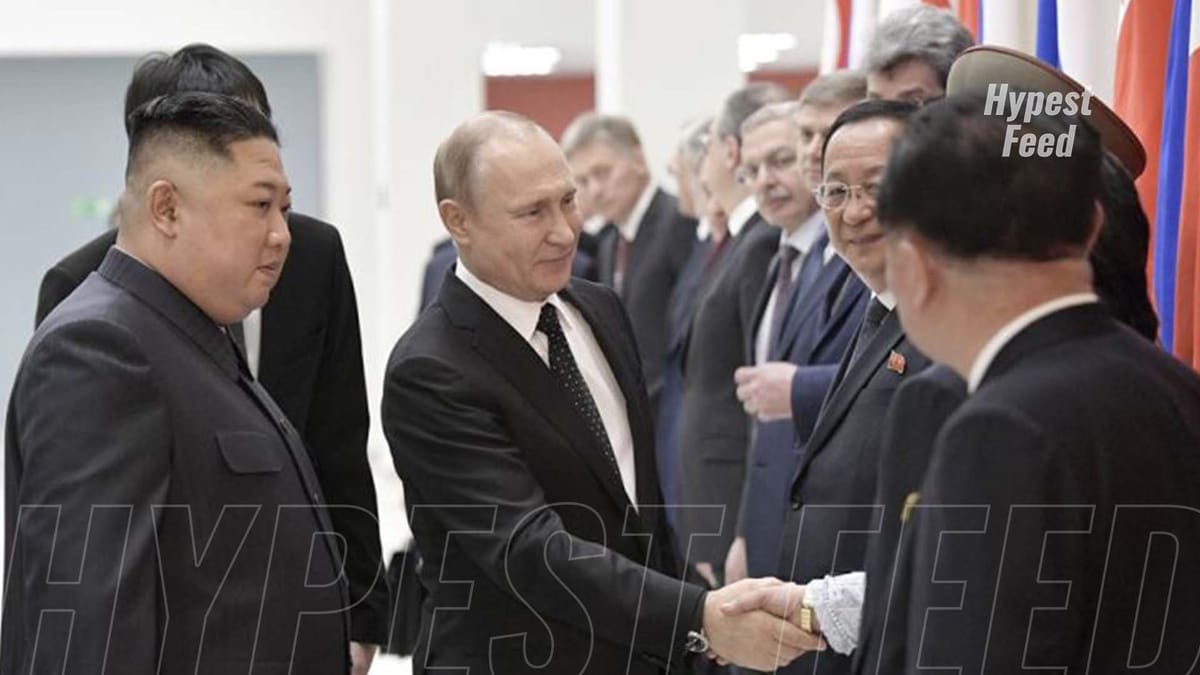Russian President Vladimir Putin's recent visit to Pyongyang marks a significant development in international relations, particularly concerning the dynamics between North Korea, Russia, and the broader global stage. Putin's statements during the visit have drawn considerable attention and speculation about the implications for regional stability and international alliances.
The Visit and Its Context
President Putin's visit to Pyongyang comes at a critical juncture when global geopolitics are undergoing significant shifts. North Korea, under the leadership of Kim Jong-un, has maintained a complex relationship with the international community, characterized by periods of isolation, diplomatic engagement, and intermittent tensions, particularly with the United States and its allies.
Putin's Statements
During his visit, President Putin praised the "heroic people" of North Korea and emphasized solidarity between North Korea and Russia in confronting challenges posed by Western powers. His remarks suggest a strategic alignment between Moscow and Pyongyang in countering Western influence and bolstering their respective geopolitical positions.
"North Korea's heroic people will confront the West with Russia," Putin stated, indicating a shared stance on global issues and potential joint actions in international forums.
Geopolitical Significance
The visit holds several geopolitical implications:
- Alignment Against Western Influence: Putin's statement reflects a shared sentiment of resistance against perceived Western dominance in global affairs. By aligning with North Korea, Russia aims to strengthen its geopolitical leverage and challenge Western policies that it views as detrimental to its interests.
- Impact on Regional Stability: The strategic cooperation between Russia and North Korea could influence regional stability in Northeast Asia. It may complicate efforts for denuclearization on the Korean Peninsula and impact diplomatic efforts led by countries like South Korea and the United States.
- International Alliances and Dynamics: The visit underscores shifting alliances and geopolitical alignments globally. It highlights Russia's proactive diplomacy in asserting its role as a global player and reshaping international relations based on mutual interests and strategic partnerships.
Reaction and Analysis
The international community has reacted with varying degrees of concern and analysis. Western nations are likely to scrutinize the implications of enhanced Russia-North Korea cooperation, particularly in the context of global security and nuclear proliferation concerns.
Analysts suggest that Putin's visit and statements are part of Russia's broader strategy to diversify its diplomatic engagements and strengthen its influence in regions traditionally dominated by Western powers. It also serves as a message to the United States and its allies about Russia's capacity and willingness to engage assertively in global affairs.
Conclusion
Putin's visit to Pyongyang and his statements regarding North Korea's role in confronting the West alongside Russia highlight evolving geopolitical dynamics and strategic alignments in a multipolar world. The visit signals Russia's intent to deepen ties with North Korea and leverage this relationship for geopolitical gains, potentially impacting global security and diplomatic efforts aimed at stability in Northeast Asia.
As the situation unfolds, the implications of Putin's visit will continue to be analyzed and debated within diplomatic circles and among policymakers worldwide. The strategic implications for North Korea, Russia, and global geopolitics underscore the complexities and challenges of navigating international relations in an increasingly interconnected yet contested global landscape.



Member discussion: